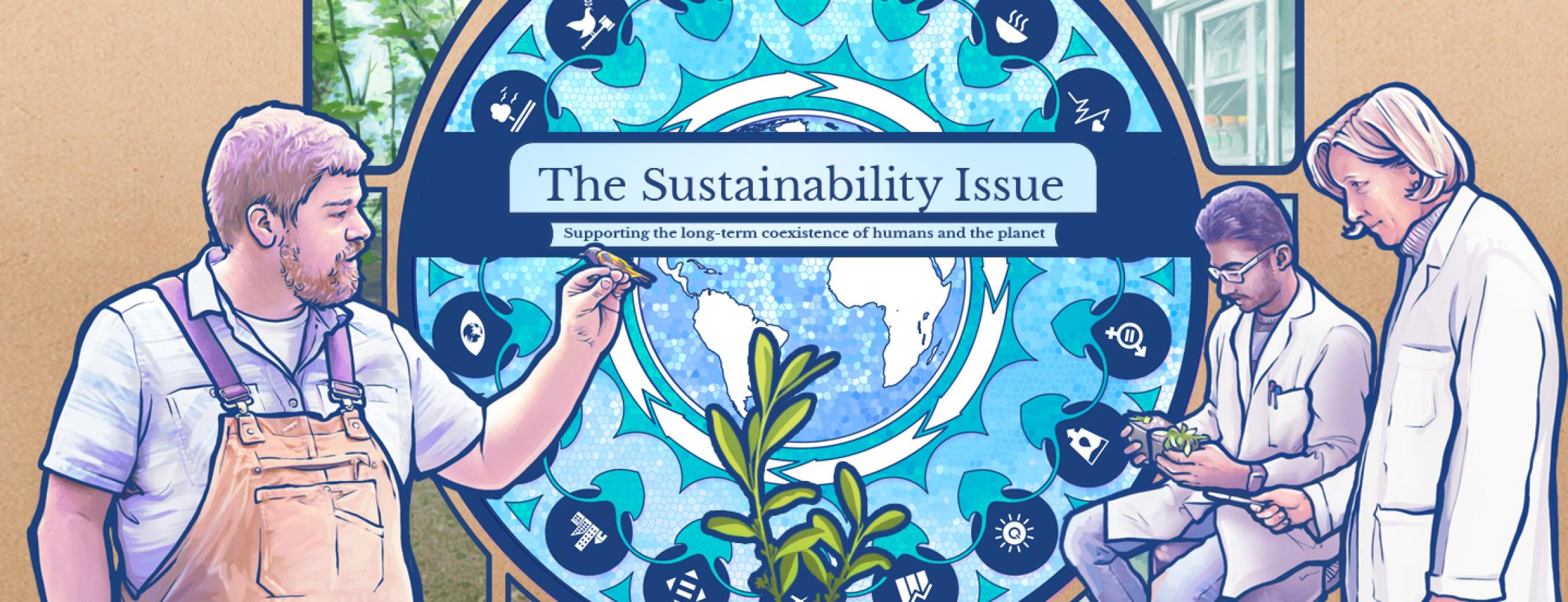
Dear Friends of the College,
I recently hit the two-year milestone of serving as your dean. When I was first appointed, I had been a faculty member of this college since 2015 and felt like I knew it well. But I have found out so much more since then, and I must say that I have absolutely loved learning about the research discoveries being made across our mathematical, physical, and life sciences departments, the innovative approaches to engaging our students and the community in meaningful ways, and the college-wide initiatives being led by our staff and associate deans. This has been more fun than I could have imagined, and I appreciate all of you for showing me the incredible impact we have as a college.
As we continue working to make our college community more inclusive, we are seeing an increase in the diversity of our graduate students generally, and specifically in the Physics program’s incoming class. We also saw a record number of undergraduate admissions—both signs that we are returning from the pandemic and continuing to grow.
Here are just a few other recent highlights:
- We launched our Prehealth Summer Bridge Program this summer, with the aid of our alumni and donors. This program supports the transition of incoming first-year students from marginalized communities who also have interests in pursuing careers in health professions, in partnership with the Penn State College of Medicine and the Children’s Hospital of Philadelphia.
- Our Learning Assistant Program is the largest in the country, with more than 400 undergraduate students participating last fall alone. Undergraduate learning assistants lead collaborative active-learning activities in our classes, and in the second week of this semester, we had over 1,000 students attend learning assistant evening sessions for our math classes. This is an incredible impact.
- Our faculty engage our students early in their education in meaningful activities, inside and outside the classroom and within our commonwealth and globally. Seventy-five percent of our spring graduates had these experiences.
- This year, Penn State ranks in the top 50 in 16 subject area rankings and in the top 100 in the world in an additional 14 subjects, according to the Academic Ranking of World Universities (ARWU), which released its 2022 Global Ranking of Academic Subjects (GRAS) on July 25. Our college’s Statistics program was placed in the top 50, and our Chemistry and Physics programs were placed in the top 100.
- WPSU Penn State won two 2022 regional Emmy awards from the Mid-Atlantic Chapter of the National Academy of Television Arts and Sciences, including for “Science-U at Home,” shot on location at our popular Science-U summer camps, which won in the Education/Schools—Documentary—Single Program category.
I’m also excited to share with you this issue of the Science Journal, which is focused on sustainability in its various forms, not just environmental but also including elements of racial and gender equity and social justice. Of course, these things are not unrelated: the negative effects of climate change inordinately impact underserved and marginalized communities.
If you haven’t already, please take a few minutes to read a piece I wrote recently for the new Penn State Eberly College of Science page on LinkedIn, discussing research by our faculty on STEM educational equity in the context of broader diversity, equity, and inclusion (DEI) trends in academia.
In this issue, we discuss select research and other initiatives—including our college’s Sustainability Council—that address important themes from the United Nations’ Sustainable Development Goals (SDGs) and advance Penn State’s goal of becoming a more sustainable institution and, ultimately, carbon neutral by 2035.
We also delve into some of the motivations, personal and otherwise, that drive us to continually assess our sustainability and work to improve it as a college and a community of concerned individuals.
It is perhaps apropos that this sustainability issue of the Science Journal is strictly digital while the journal itself is under construction.
We have a new director in our Office of Communications, Heather Robbins, who comes to us from the University’s Office of Strategic Communications. Our communications team is using this fall to evaluate this flagship publication and is excited to bring you a revamped version in 2023. As with all our communications, we are continuing to optimize our strategies broadly to best serve our college community and meet your needs while making beneficial connections.
As our college continues to grow and evolve, we must also take stock of our long-term financial sustainability. You may have read that the University is reassessing its financial commitments, and I am privileged to be a member of the working group tasked with exploring and developing a new budget model that better serves the mission, vision, and values of the University. I’m happy to share that, while of course we will need to make adjustments along with the rest of the University, we are in a good place overall. Those of us in leadership are optimistic about the college’s present and future.
Speaking of our community, I want to take a moment to express how proud I am of all of you—from our faculty and staff to our students and alumni.
It takes our entire village to make the kind of change that we can be proud of, and I am thrilled with how you all have stepped up together in the face of unprecedented challenges to carry on our shared mission and uplift the current and upcoming generations of scientific leaders here at Penn State and beyond.
I hope you enjoy these stories and more that we will continue to share.
Kind regards,
Tracy Langkilde
Verne M. Willaman Dean
Penn State Eberly College of Science
